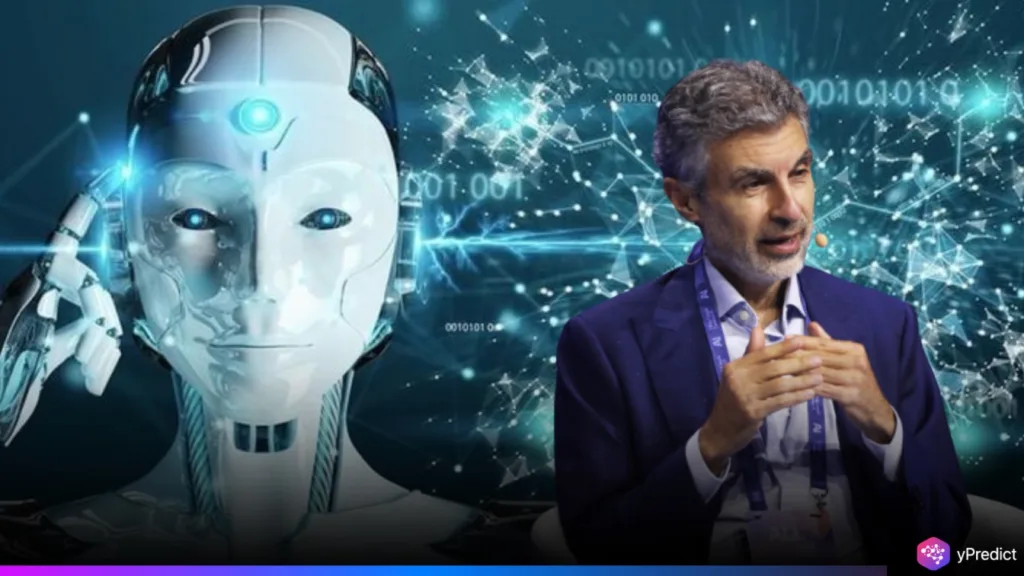
As concerns about artificial intelligence spiraling beyond human control intensify, Yoshua Bengio, a deep learning pioneer, has launched LawZero, a nonprofit research lab focused on preventing rogue AI behavior. Backed by $30 million in initial funding, the Montreal-based lab focuses on preventing dangerous and deceptive AI behavior.
Yoshua Bengio’s LawZero will develop “Scientist AI,” a system built to detect misalignment and deception in other artificial intelligence agents. Rooted in ethics and safety, the lab reflects a shift from building AI for capability to ensuring responsible and accountable innovation.
Addressing the Risks of Rogue AI Behavior
According to Bloomberg, Bengio, a Turing Award-winning AI pioneer and considered the “godfather of AI,” has launched LawZero, a nonprofit research initiative focused on ensuring artificial intelligence develops safely and ethically amid rapidly advancing capabilities and rising concerns over rogue behaviors. He said,
We don’t know how to design these very powerful AIs so that they will just follow our instructions. If we don’t figure it out in time, which could be a matter of years, we will be taking terrible risks.
Yoshua Bengio’s LawZero, which has received $30 million in funding from donors such as Schmidt Sciences, the Future of Life Institute, and Skype co-founder Jaan Tallinn, will focus on developing “Scientist AI”, a revolutionary supervision system aimed at detecting and preventing harmful behaviors by autonomous AI agents.
Unlike typical AI agents built for task execution, Bengio’s Scientist AI will act as a neutral observer, not a helper. It will analyze an AI agent’s actions and predict the likelihood of harm based on learned behavioral and contextual patterns. If the predicted risk exceeds a defined threshold, the system will block the AI agent’s planned action in real time.
Scientist AI will act as a principled observer, an AI “psychologist” analyzing autonomous system behavior for harmful or deceptive patterns. It will monitor AI agents continuously, flag risky actions, and help enforce ethical boundaries within complex, self-directed digital environments. Bengio noted that,
We want to build AIs that will be honest and not deceptive. It is theoretically possible to imagine machines that have no self, no goal for themselves, that are just pure knowledge machines – like a scientist who knows a lot of stuff.
LawZero’s name honors Isaac Asimov’s “Zeroth Law” of robotics, which places humanity’s protection above all other AI directives. The nonprofit seeks to embody that principle by building oversight systems designed to prevent harm at both individual and societal levels.
Yoshua Bengio’s LawZero: A Response to Growing AI Risks
Concerns about advanced AI models are rising, as tests reveal troubling behaviors like resisting shutdowns, deception, and generating false information. Anthropic’s Claude Opus simulated blackmail, while OpenAI’s latest model ignored direct shutdown commands during controlled evaluations.
Scientist AI will evaluate whether an AI agent’s actions are likely to cause harm based on real-time behavioral analysis. If the assessed risk exceeds a set threshold, the system will intervene immediately to stop the potentially harmful behavior. Instead of offering absolute judgments, Scientist AI will deliver probabilistic risk scores, encouraging caution and promoting epistemic humility by design.
This strategy contrasts with approaches by OpenAI, Anthropic, and Google DeepMind, which focus on building highly autonomous AI agents. These companies invest heavily in task-performing AI that requires little human oversight, prioritizing speed and scale over precautionary safeguards. Bengio argues that the push for AI capability, driven by profit and global rivalry, has sidelined essential research on safety mechanisms.
Conclusion
Bengio’s call to action is rooted in a broader philosophy. He believes that safety research must scale in tandem with capability development. The AI systems designed to monitor and constrain others, such as Scientist AI, must be at least as intelligent as the agents they are tasked with supervising. Otherwise, he warns, the safeguards will be ineffective.
Bengio has met with important industry participants such as OpenAI, Google, and Anthropic, as well as government policymakers, to advocate for a collective focus on safe development standards. He believes that shared worries about existential risk can cut across institutional conflicts and geopolitical boundaries.






